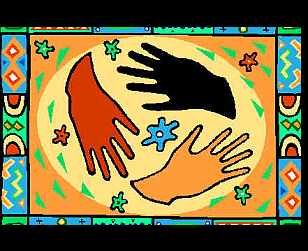Turkey has been repeatedly criticized and admonished by the United Nations (UN) Committee for Rights of the Child because of reservations regarding 3 articles of the Convention of the Rights of the Child (CRC). bianet talked to Adem Arkadaş from the International Children's Centre (ICC). The children's rights defender explained, "These reservations violate the children's rights as well as the Convention. The committee will impose the same criticism in 2011 if the corresponding amendments will not be made".
According to Arkadaş, these reservations have to be lifted within the government's process of the "democratic initiative".
Restricted articles
The convention was enforced in 1995. In order to prevent education in the mother tongue of different ethnic groups in the country, Turkey put reservations on the following articles of the convention:
- 17 (d): Encourage the mass media to have particular regard to the linguistic needs of the child who belongs to a minority group or who is indigenous.
- 29 (c): The development of respect for the child's parents, his or her own cultural identity, language and values, for the national values of the country in which the child is living, the country from which he or she may originate, and for civilizations different from his or her own.
- 30: In those States in which ethnic, religious or linguistic minorities or persons of indigenous origin exist, a child belonging to such a minority or who is indigenous shall not be denied the right, in community with other members of his or her group, to enjoy his or her own culture, to profess and practise his or her own religion, or to use his or her own language.
Chidren's rights defenders ask "When?"
The children's rights defenders ask whether the government considers lifting the reservations in the scope of the "Democratic Initiative". Because, the reservations violate the children's rights to "education, freedom of expression, to live their own culture and to use their mother tongue".
Turkey's answer to the UN: There is no problem
As far as the criticism of the UN is concerned, Turkey puts forward the Treaty of Lausanne as pretence. The treaty defines only non-Muslim minorities. In the report issued to the United Nations in August this year, Turkey said, "Regarding children belonging to different groups under the aspect of their ethnic roots, language or religion, there are no problems for them to benefit from their own culture, to follow and apply their own religious beliefs or to practice their religions in specific places". The children's rights defender have another question for the government: "Which monitoring mechanisms have been applied to compile this information that reveals that the reservations do not have any negative impact on the children's daily life?"
Arkadaş: article 2 prevents discrimination
Arkadaş pointed out that since the state allows broadcasts in other languages than Turkish, the reservations do not make sense on an economic basis either. The children's rights defender emphasized that article 2 of the Convention for the Rights of a Child invalidates this kind of reservations.
The first paragraph of article 2 goes as follows:
1. States Parties shall respect and ensure the rights set forth in the present Convention to each child within their jurisdiction without discrimination of any kind, irrespective of the child's or his or her parent's or legal guardian's race, colour, sex, language, religion, political or other opinion, national, ethnic or social origin, property, disability, birth or other status. (TK/VK)














